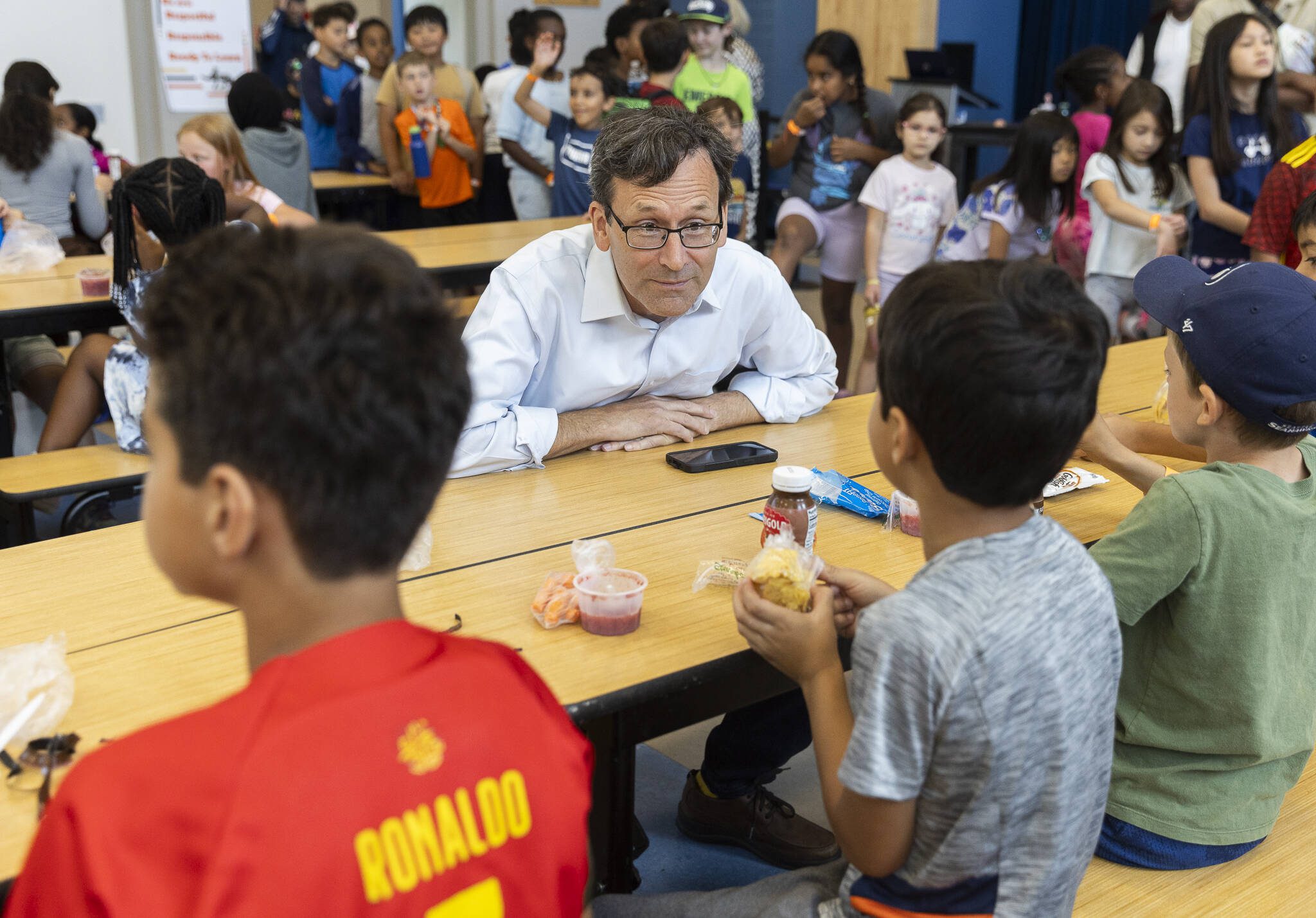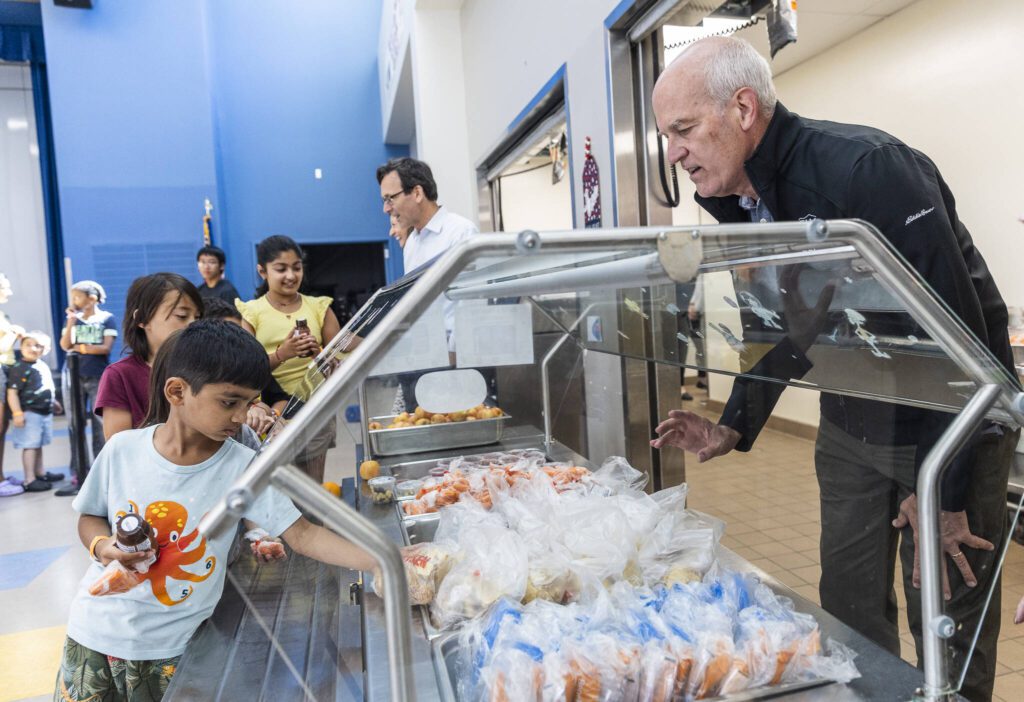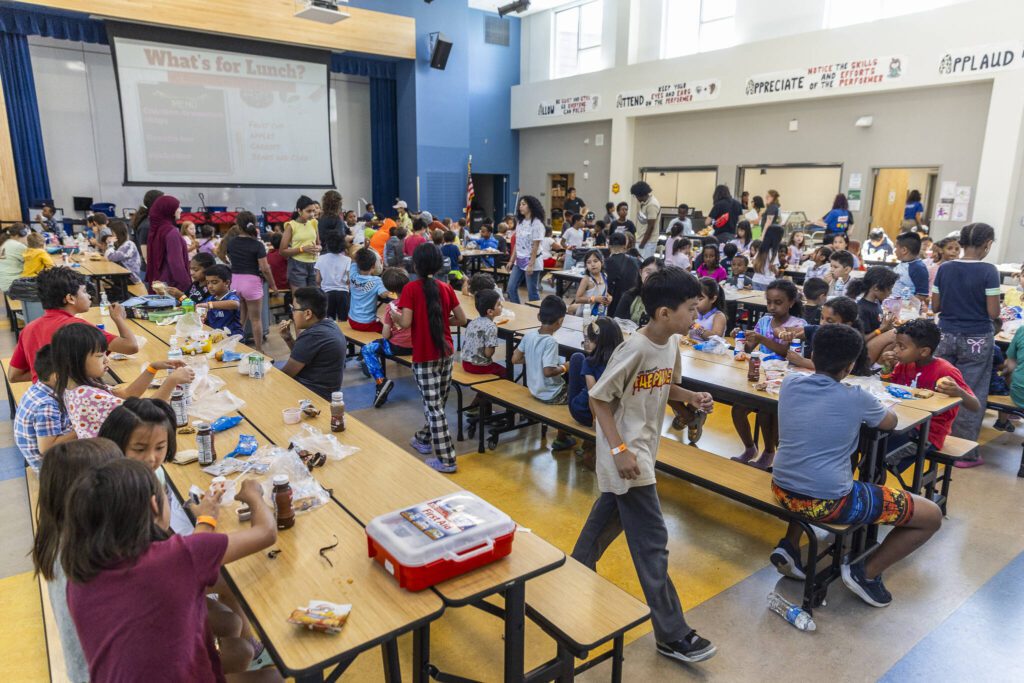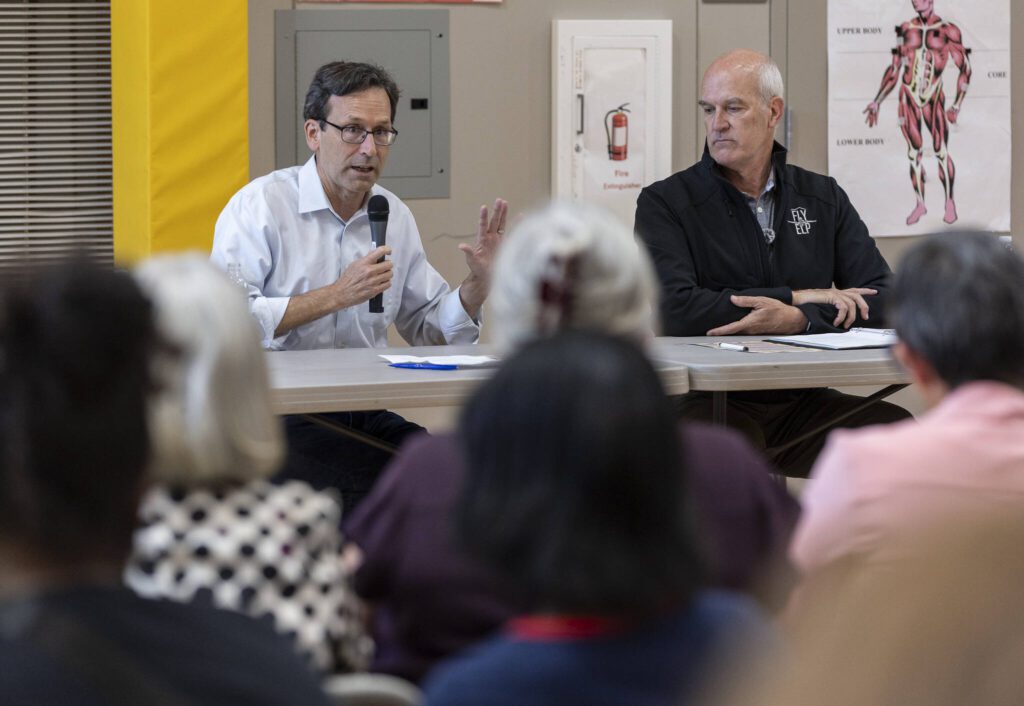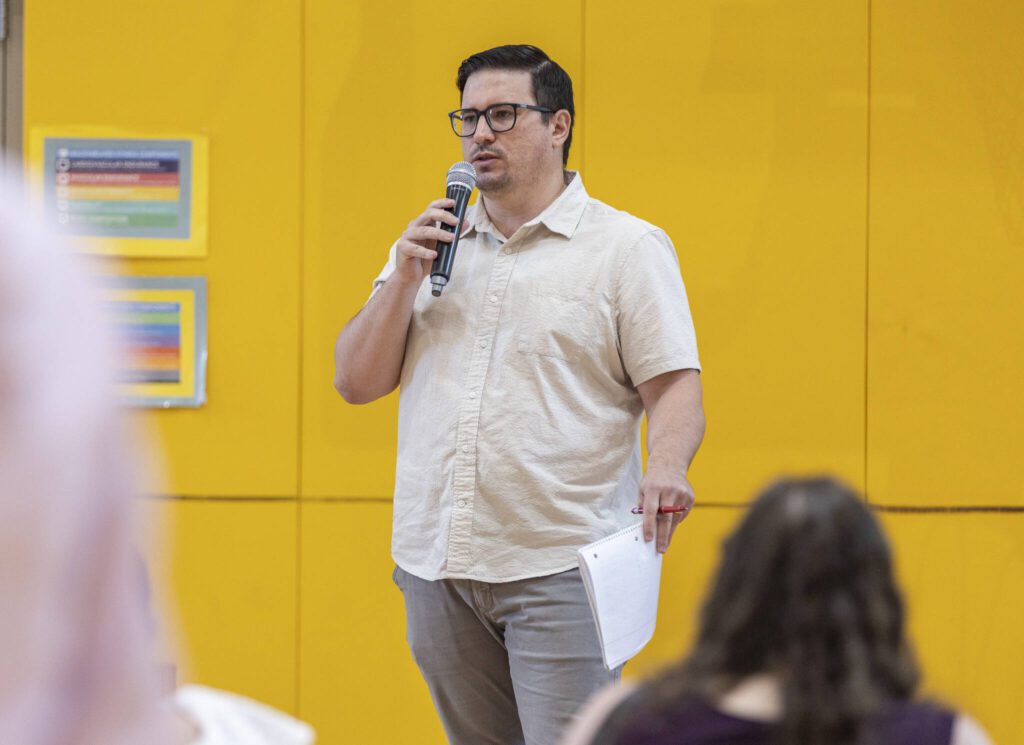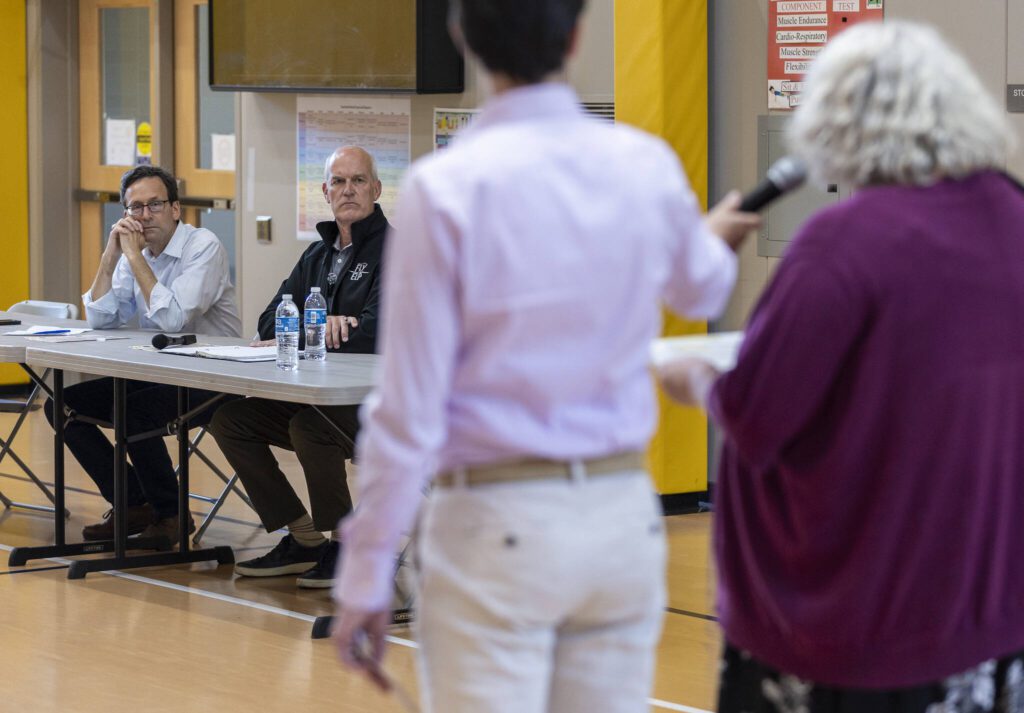LYNNWOOD — Edmonds School District students participating in a free lunch summer program saw two new faces behind the lunch counter Thursday.
Gov. Bob Ferguson and Rep. Rick Larsen, D-Everett, chatted with students at Lynnwood Elementary School before holding a listening session with community leaders and families.
On July 4, U.S. Congress enacted President Donald Trump’s spending bill, which cut Supplemental Nutrition Assistance Program funding by 20%. In Washington, 137,000 people will need to meet additional work requirements to keep food assistance benefits.
Ferguson said he is working on implementing universal free lunch in schools. At Edmonds School District, 44% of students qualify for free or reduced lunch.
“I realize we have budget challenges as a state, but this is important to me,” Ferguson said.
In March, the Trump administration canceled more than $1 billion in funding for schools and food banks to buy food from local farmers. Of the funding, $8.5 million would have gone to Washington state. The administration also canceled several deliveries through the Emergency Food Assistance Program, which provides $500 million in food deliveries nationwide.
“These cuts are already happening,” Larsen said. “We’re already seeing less food at our food banks, less money for food banks to purchase food.”
As cuts go into effect, demand across the county is increasing. The Edmonds Food Bank saw a 27% increase in people visiting the food bank from 2023 to 2024, Larsen said. The Foundation for Edmonds School District expects a 30% increase in food services with the reduction in SNAP benefits, said Deborah Brandi, the foundation’s executive director. The foundation doesn’t receive direct federal funding, but it’s feeling the cuts that its partners are experiencing, she said.
“We’ll be looking for other resources to fill in our gaps because for us, it’s just not an option to not feed our families,” Brandi said. “If our kids are hungry over the weekend, they can’t come back to school on Monday morning and be ready to learn, and that’s their primary goal and purpose, is to be ready to learn.”
In 2023, more than 92,000 people faced food insecurity in Snohomish County, according to data from Feeding America, an increase of more than 12,000 people since 2022.
From 2019 to 2024, the Lynnwood Food Bank saw four times as many visitors, said Alissa Jones, executive director of the food bank. The increase in demand, coupled with food prices going up, has put strain on the food bank’s budget and staffing, she said.
“This has been a forever thing, but it’s getting worse now,” Jones said.
Volunteers of America Western Washington runs food banks in Everett and Sultan and a distribution center in Arlington, said John Glennon, executive director of hunger prevention services for Volunteers of America. The Washington State Department of Agriculture told the organization to expect a 26% reduction to Emergency Food Assistance Program deliveries.
In Everett, Glennon said the upcoming closure of a Fred Meyer on Casino Road will lead to more food insecurity in the area.
“With our clients that we serve on Casino Road, many of them walk to that Fred Meyer location,” Glennon said. “It’s a major, major resource for those folks. … That’s going to further exacerbate what we’re trying to do as well.”
Both Ferguson and Larsen stressed the importance of different organizations and governments working together to find solutions to food assistance challenges.
“It’s not any one organization or government that’s going to solve this problem,” Ferguson said. “It’s going to take all of us. That’s why I appreciate all of you being here and leaning into this.”
Jenna Peterson: 425-339-3486; jenna.peterson@heraldnet.com; X: @jennarpetersonn.
Talk to us
> Give us your news tips.
> Send us a letter to the editor.
> More Herald contact information.
